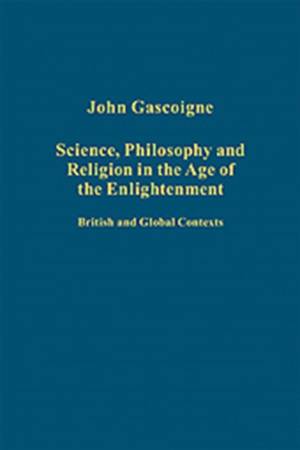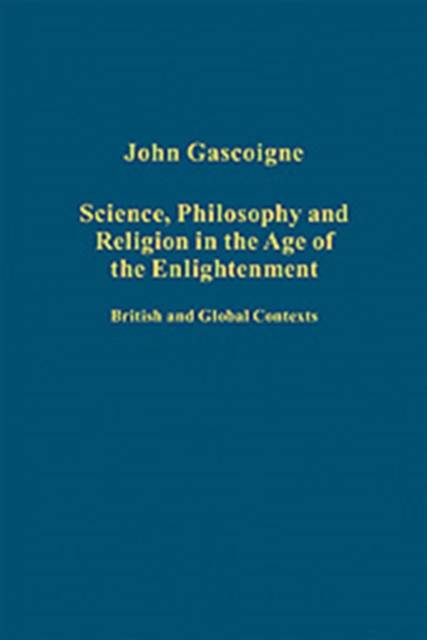
- Afhalen na 1 uur in een winkel met voorraad
- Gratis thuislevering in België vanaf € 30
- Ruim aanbod met 7 miljoen producten
- Afhalen na 1 uur in een winkel met voorraad
- Gratis thuislevering in België vanaf € 30
- Ruim aanbod met 7 miljoen producten
Zoeken
Science, Philosophy and Religion in the Age of the Enlightenment
British and Global Contexts
John Gascoigne
€ 244,95
+ 489 punten
Omschrijving
Taking as its focus the wide-ranging character of the Enlightenment, both in geographical and intellectual terms, this second collection of articles by John Gascoigne explores this movement's filiation and influence in a range of contexts. In contrast to some recently influential views it emphasises the evolutionary rather than the revolutionary character of the Enlightenment and its ability to change society by adaptation rather than demolition. This it does by reference, firstly, to developments in Britain tracing the changing views of history in relation to the Biblical account, the ideological uses of science (and particularly the work of Newton) and their connections to developments in moral philosophy and the teaching of science and philosophy in response to Enlightenment modes of thought. The collection then turns to the wider global setting of the Enlightenment and the way in which that movement served to provide a justification for European exploration and expansion, developments which found one of their most potent embodiments in the diverse uses of mapping. The collection concludes with an exploration of the interplay between the experience of Pacific contact and the currents of thought which characterised the Enlightenment in Germany.
Specificaties
Betrokkenen
- Auteur(s):
- Uitgeverij:
Inhoud
- Aantal bladzijden:
- 328
- Taal:
- Engels
- Reeks:
Eigenschappen
- Productcode (EAN):
- 9781409400585
- Verschijningsdatum:
- 28/05/2010
- Uitvoering:
- Hardcover
- Formaat:
- Genaaid
- Afmetingen:
- 149 mm x 224 mm
- Gewicht:
- 717 g

Alleen bij Standaard Boekhandel
+ 489 punten op je klantenkaart van Standaard Boekhandel
Beoordelingen
We publiceren alleen reviews die voldoen aan de voorwaarden voor reviews. Bekijk onze voorwaarden voor reviews.








